- Home
- Aharon Appelfeld
Laish
Laish Read online
ALSO BY AHARON APPELFELD
Badenheim 1939
The Age of Wonders
Tzili
The Retreat
To the Land of the Cattails
The Immortal Bartfuss
For Every Sin
The Healer
Katerina
Unto the Soul
Beyond Despair:
Three Lectures and a Conversation with Philip Roth
The Iron Tracks
The Conversion
The Story of a Life
A Table for One
All Whom I Have Loved
This is a work of fiction. Names, characters, places, and incidents either are the product of the author’s imagination or are used fictitiously. Any resemblance to actual persons, living or dead, events, or locales is entirely coincidental.
Translation copyright © 2009 by Aloma Halter
All rights reserved. Published in the United States by Schocken Books, a division of Random House, Inc., New York, and in Canada by Random House of Canada Limited, Toronto.
Schocken Books and colophon are registered trademarks of Random House, Inc.
Originally published in Israel by Keter Publishing House Ltd., Jerusalem, in 2001.
Copyright © 2001 by Aharon Appelfeld and Keter Publishing House Ltd.
Library of Congress Cataloging-in-Publication Data
Appelfeld, Aron.
[Layish. English.]
Laish /Aharon Appelfeld; translated from the Hebrew by Aloma Halter.
p. cm.
ISBN 978-0-8052-4159-4
I. Halter, Aloma. II. Title.
PJ5054.A755L3913 2009
892.4′36–dc22 2008031755
Ebook ISBN 9780805243475
www.schocken.com
v4.1
a
Contents
Cover
Also by Aharon Appelfeld
Title Page
Copyright
Chapter 1
Chapter 2
Chapter 3
Chapter 4
Chapter 5
Chapter 6
Chapter 7
Chapter 8
Chapter 9
Chapter 10
Chapter 11
Chapter 12
Chapter 13
Chapter 14
Chapter 15
Chapter 16
Chapter 17
Chapter 18
Chapter 19
Chapter 20
Chapter 21
Chapter 22
Chapter 23
Chapter 24
Chapter 25
Chapter 26
Chapter 27
Chapter 28
Chapter 29
Chapter 30
Chapter 31
Chapter 32
Chapter 33
Chapter 34
Chapter 35
Chapter 36
Chapter 37
Chapter 38
Chapter 39
Chapter 40
Chapter 41
Chapter 42
Chapter 43
Chapter 44
Chapter 45
Chapter 46
Chapter 47
1
My name is Laish, and those who like me call me Laishu. I have yet to run into anyone with such a strange name. There are people who are bemused, but most just accept it. I’ve heard that the name comes from Hungary. Who knows?—my parents died young. A few years ago, I could still see them in a blurred way. Now I’m fifteen, and their features have been effaced from my memory. At times, they’ll surprise me in a dream, calling my name. If I ran into them in the street, I wouldn’t recognize them. And I, too, must surely have been forgotten by them.
For the past two years I’ve been helping a man by the name of Fingerhut—a man of middling height, with the look of someone sure of himself. But that’s just his outward appearance. He is sick, with an agonizing illness that weakens him relentlessly. I thought that suffering might soften his anger, but I was wrong. His anger, or, actually, his roars, have only become more dreadful over the course of time. If his morning coffee isn’t served at precisely six a.m., he’s ready to overturn everything. In return for my help, he gives me half a loaf of bread each day and a little milk. On Fridays, there is a piece of chicken with a pickle. If he’s in a good mood and he’s satisfied with how I serve him, he’ll give me more. Once he bought me a bar of halvah. But most days he is immersed in his pain and his anger, and he takes it out on me. I don’t answer him. I’ve learned not to respond. His anger eventually weakens him, and first he falls silent and then he falls asleep.
Once he caught me by surprise, asking me about my name. I told him what people told me. He advised me to change it.
“A name like yours stirs up anger, and people will make fun of you.”
“Do you have a name for me?” I asked.
“Why don’t you call yourself Shimshon?”
I laughed.
“Why do you laugh? The name will give you strength.”
—
Most of the day Fingerhut lies prone on his wagon, swathed in blankets, writhing in pain. Toward evening he might rally and start talking with those around him. People have no respect for him, but they are still afraid of him. He is a man of means, and many need him.
“Why do you only come begging to me?” he rebukes those who gather around him, driving them away. People do not stand on their pride, and they come back and ask again, both for loans and for charity. Instead of a pawn ticket, he might give a loan, but not outright charity. When anyone asks for financial help, he says, “No one gave me anything.”
Fingerhut is very sick, but he never talks about his illness. At one of our resting places, a medic declared that he should go to Vienna for an operation. Since then he hasn’t visited a medic. What keeps him going is the power of the hot-water bottles that I prepare for him. When a bottle makes him feel better, he gives me a few pennies.
“Why don’t you go see a doctor,” grumble the people whose sleep is disturbed by his nightly groans.
“What help will the doctors be?”
“They’ll operate on you and they’ll give you back your health.”
“I don’t believe it.”
“And what do you believe in?”
This he doesn’t answer.
—
There is never bad without some good. Fingerhut’s sickness makes him prescient: he knows what to buy and what to sell, and he always profits. Naturally, he reveals the secret to no one, but I know that this merit comes from his sickness, from his interrupted sleep and constant pains. For nights on end he doesn’t sleep. Once he used to be at the center of things, and at night he would terrorize people, but since he fell sick the other dealers keep their distance. His grim face instills terror, and were it not for some thugs, whom he constantly bribes, it is doubtful that people would let him stay on the wagon. And yet he still does not restrain himself: at least once each night he raises himself up, exposes the upper part of his body, and shouts in a grating voice, “Cheats!”
—
We are a motley crew, making our way along the roads in six wagons. There used to be eight. The wagons are wide, laden with people and all their belongings. There are some remarkably old men and women. The convoy, so they say, is headed toward Jerusalem. I doubt it. There are a few old people who rise early to pray, but most of the others are absorbed by their own affairs and don’t have patience for matters of belief.
I get up among the early risers, light a bonfire, and serve Fingerhut a mug of coffee. The morning hours are my best hours of the day. I sit next to the bonfire and sip coffee. As I already said, I don’t believe that the convoy intends to reach Jerusalem, even though wherever we arrive, the dealers declar
e our destination at the top of their lungs. But there can be no doubt about one thing: the name Jerusalem holds great enchantment. When we reach a small town—and most of them are small towns—the locals immediately come out of their squat houses and stand there marveling. Not an hour goes by before the women serve us drinks and sandwiches. In the summer they give us fruit from their gardens. In the cold and the rainy months we sleep in the synagogue. These are the days when fortune smiles upon me. In the synagogue, I always find some quiet, neglected corner where I can stretch out my legs and sleep without being cramped. And the main thing is that I’m given many errands. In return for my services I get a coin or a pretzel. Fingerhut rages at me, saying that I’m neglecting him and threatening to fire me. I’ve learned how to placate him. At night I bring him a mug of coffee. He smiles, and that’s the sign that my wrongdoing has been forgiven.
Once Fingerhut told me that he used to believe that Jerusalem would heal his sickness, but he no longer believes it. The convoy is no more than a fraud. Were it not for the money that people owe him, he would leave it without delay. The opinion of Fingerhut’s wagon mates is completely different. They claim that when he joined the convoy he was desperately poor. Over time, he would exploit the weaknesses of his fellow creatures, pretending to be on the committee, ingratiating himself with everyone to get rich. It’s true that over the past year he has no longer been pretending, but he remains wicked. If he would help those in need, they would in recompense pray for his recovery, but because he’s a miser they ignore him, and he’s left to wallow in his sickness.
Once he asked me if I would be prepared to leave with him. I was surprised, and I didn’t know what to answer. Finally, I coughed and said that I also wanted to ascend to Jerusalem. I was happy that I said “ascend to,” which, by the way, is an expression that people often use. Fingerhut glared at me and said, “Either you’re a fool or you’re wicked.”
“But everyone says we’ll ascend to Jerusalem.”
“Those words sicken me more than the ulcer.”
“My mistake.”
“You can steal, you can cheat, but you’re not allowed to use those words.”
“What should I say?”
“There are words that shouldn’t be used. Using them is a fraud. You understand?”
I found it hard to understand him.
Here they quarrel about everything, but not about the deception itself. In the name of Jerusalem we are always welcomed with piety; we are blessed and given charity. This plodding along enables all of us to make a living. Only once, I recall, did a group of furious Jews attack us, driving us away with blows and pitchforks, forcing us to turn off the main road. Entreaties were of no use. They beat the horses in fury, shouting, “You scum! Enough of this mouthing the name of Jerusalem just to bring light to eyes that have lost their glimmer and to turn ordinary folk into generous people.”
Fingerhut does not try to hide his thoughts from me, and in the early morning hours, as he sips the coffee that I’ve made for him, he tells me again and again that this way of proceeding is nothing but a deception, nothing but treading in place. It reflects neither nobility nor the ascent of the soul, but a shameless weltering. His words, spoken early in the morning, are a frightening disclosure of what he really thinks.
“One of these days, they’ll throw me off as well,” he says, revealing just a bit of his fears to me.
“Why?”
“They always throw off the sick, in the end.”
“I’ll join you.”
“I find that hard to believe.”
“I promise you.”
“It’s not your fault. Man is rotten by nature.” He tries to placate me.
From time to time he will say, “Don’t leave me.”
“I won’t.”
In return for this promise, he gives me a few candies or a pretzel, but when the black mood is upon him, he leaves no doubt. “You’ll abandon me as well.” It seems that this is his deepest fear.
One night, one of the old men came up to me, held out a notebook, and said, “In another day I’ll be leaving this world, and I want to entrust you with this notebook. I’ve written in it the names of those who died, and the day of their passing. From tomorrow on, you’ll write in it. That’s it. Nothing more.”
“Grandfather.” A tremor escaped from my throat.
“Don’t be afraid.”
“I don’t know how to write.”
“It’s very simple.”
“I’m afraid.”
“It’s your fate, my son, and you cannot refuse.”
“Where should I put the notebook?”
“In the lining of your coat.”
“Why did you choose me from all the others, Grandfather?” I trembled.
“That’s how it is.”
“I’m a thief, Grandfather, and I’m a liar, too.”
“Quiet!” The old man raised his voice to me.
I wanted to run away, but my legs were rooted to the spot. I picked up the notebook and slipped it into my coat lining. The old man laid his hand on my head and said, “May the Almighty bless you from His place in heaven.” He pushed a coin into my palm and was gone.
The next day I still saw him sitting in his wagon and praying. He prayed quietly, in a normal voice, like a man who is in no hurry. No sign of bad things clouded his face. I decided that I would return the notebook to him that night. But before I could do it, he passed away, as he had said he would. I hurried to get change for the coin he had given me and added some pennies of my own. The funeral was cold and brisk and without ceremony. After the funeral I distributed the pennies to the poor. The wretched people took them from me without questions and without thanks. One took his share, and with a furious glance said to me, “Where did you get this money, you thief?”
2
Here, everyone’s a thief. Even in the summer, people sleep in their coats. If you have a package, you tie it to your body, but even this is no guarantee. Fingerhut, who gives me my daily bread, doesn’t trust his heavy coat and sews his money into the shirt next to his body, but they still manage to steal from him. I have no parcels and no money. Whenever I get a few pennies I spend them the same day. Two years ago, one of the old men had a stroke and died after his savings were stolen during the night. Even this tragedy did not put a stop to the stealing. Moreover, sometimes a man may get up and declare, “I went stealing last night.” Yet the look on his face is like a drunk who hasn’t sobered up. Strange things take place here. Every day I’m astonished anew.
And as for me, since Old Ya’akov gave me that notebook, I find it hard to sleep at night. I don’t dare open it. It seems as if the names of the dead recorded in the notebook are asking me to free them from their death. I would take the notebook out from my lining and bury it, if I weren’t afraid to.
There have been many times when I’ve wanted to tell Fingerhut about this. He’s indifferent to such disclosures, usually citing the well-known verse The heavens are the heavens of the Lord, but the earth He has given to mankind. It has a frightening meaning: Don’t raise your eyes to the heavens; cast them downward and worry about tomorrow. Fingerhut’s pains have become more intense over the past month, and I’m kept busy for hours preparing hot-water bottles for him. “The hot-water bottles save my life,” he says again and again, groaning, and gives me a coin or two.
“Hand out some of your money to those who need it, and things will go better for you. Why do you even need so much money?” People goad him.
“And who’s going to support me in Jerusalem?”
“In Jerusalem, God will look after you.”
At night, the talk is bitter. The words are removed from their sheaths. Fingerhut refuses to be beholden to anyone. At every hurt he strikes back.
“I’m a bad man, but I’m not self-righteous,” he’ll say, with a twist of the knife.
“You’re rotten through and through.”
“What of it?”
Even the intense pains haven’t
affected his mind. His pains give him strength, if one can say this. Whenever he draws out a word, it’s as though it is a poisoned arrow: words like “let’s suppose” or “so what?” Tiny words that stoke the fire.
“If you behaved decently, people would love you.” They resume their taunts.
“I don’t want to be loved,” he’ll shoot back.
—
Meanwhile, it’s summer and we sleep outside. The small bonfires by the light of the blazing sunset remind me of a different life. Where this life was, I cannot remember.
At times when we stop by a river, the water unexpectedly brings to mind shadows from my childhood. The shadows are very slight, like the light that clings to them. They make me dizzy. I clutch my face with my hands to dull their searing touch.
The long summer evenings that go on deep into the night flood me with longing for my nameless parents. Some of those in the convoy knew them well, but for some reason they haven’t told me anything about them. As for me—I don’t dare to ask. It is a bond of silence that weighs upon me. My roots are cut off like stumps, and sometimes I feel the pain inside the wounds.
One of the old men told me that at one time my parents also wanted to participate in the journey, but they came down with typhoid and never rose from their sickbeds. After they died, people in the convoy took me in, adopted me, and I’ve been here ever since. I trust the old men; they’re careful about cleanliness and they speak the truth. It’s hard for me to understand how they live in this filth. True, people are protective of their honor, but not always. A year ago, for no apparent reason, one of the thugs attacked Old Avraham, hurting him badly. The punishment was not long delayed: typhoid spread through the camp and killed two women.
During the long summer evenings Old Avraham instructs me in the weekly Bible portion. I don’t find it easy to study. Old Avraham is a stickler, and if I make a mistake pronouncing a word or I get its meaning wrong, he scolds me. But he doesn’t hit me. On Friday mornings he tests me. His tests are also difficult. I have to know the first part of the weekly portion by heart, and if I fail (and I usually do), he rebukes me outright and tells me that I should take my studies far more seriously and not laze around. Otherwise, he says, I’ll come to a bad end. I would really like to make him happy, but I cannot overcome my bad memory.

 Long Summer Nights
Long Summer Nights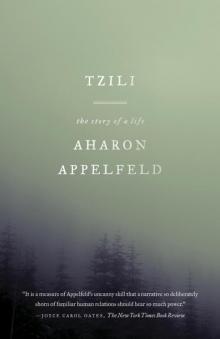 Tzili
Tzili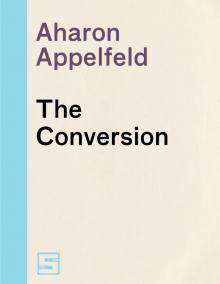 The Conversion
The Conversion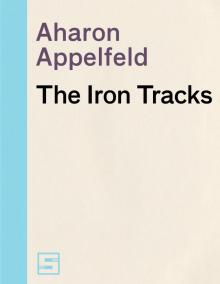 The Iron Tracks
The Iron Tracks All Whom I Have Loved
All Whom I Have Loved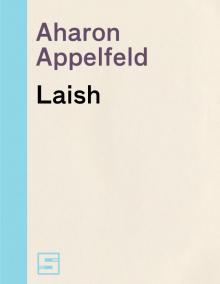 Laish
Laish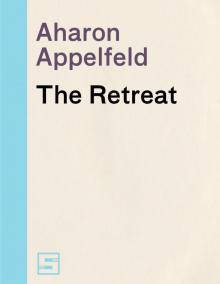 The Retreat
The Retreat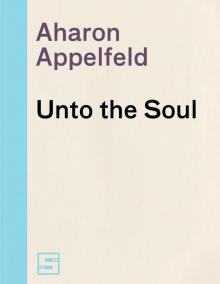 Unto the Soul
Unto the Soul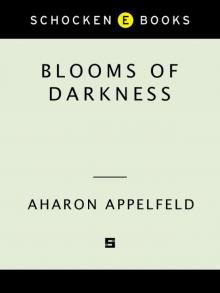 Blooms of Darkness
Blooms of Darkness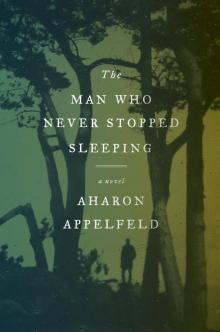 The Man Who Never Stopped Sleeping
The Man Who Never Stopped Sleeping Katerina
Katerina Until the Dawn's Light
Until the Dawn's Light Adam and Thomas
Adam and Thomas Suddenly, Love
Suddenly, Love